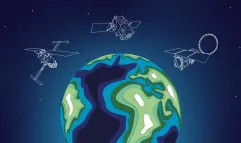Since its launch in 2014, Thales Alenia Space’s Innovation Cluster has propelled the company to new heights of innovation. The Innovation Cluster is an excellent fit with our R&D units and covers all Thales Alenia Space entities in France, Italy, Spain, Belgium, and the United Kingdom. It’s a highly agile team-centric structure that can instantly provide the funding and resources needed to validate new solutions likely to generate a real market dynamic, technological breakthroughs, and novel avenues of development for customers.
The Innovation Cluster ensures an astute blend of the company’s legacy approaches with the opportunities of New Space. In-house, it supports the development of innovative projects based on the same logic as startups. Outside the company, Thales Alenia Space has adopted an Open Innovation approach, coordinating all interactions between the company and the innovative ecosystem — especially startups, some of which are physically accelerated on our sites — to explore new development opportunities. This helps us identify the most relevant partners and minimize risks while promoting mutually beneficial collaboration.
Absolutely FabLabulous!
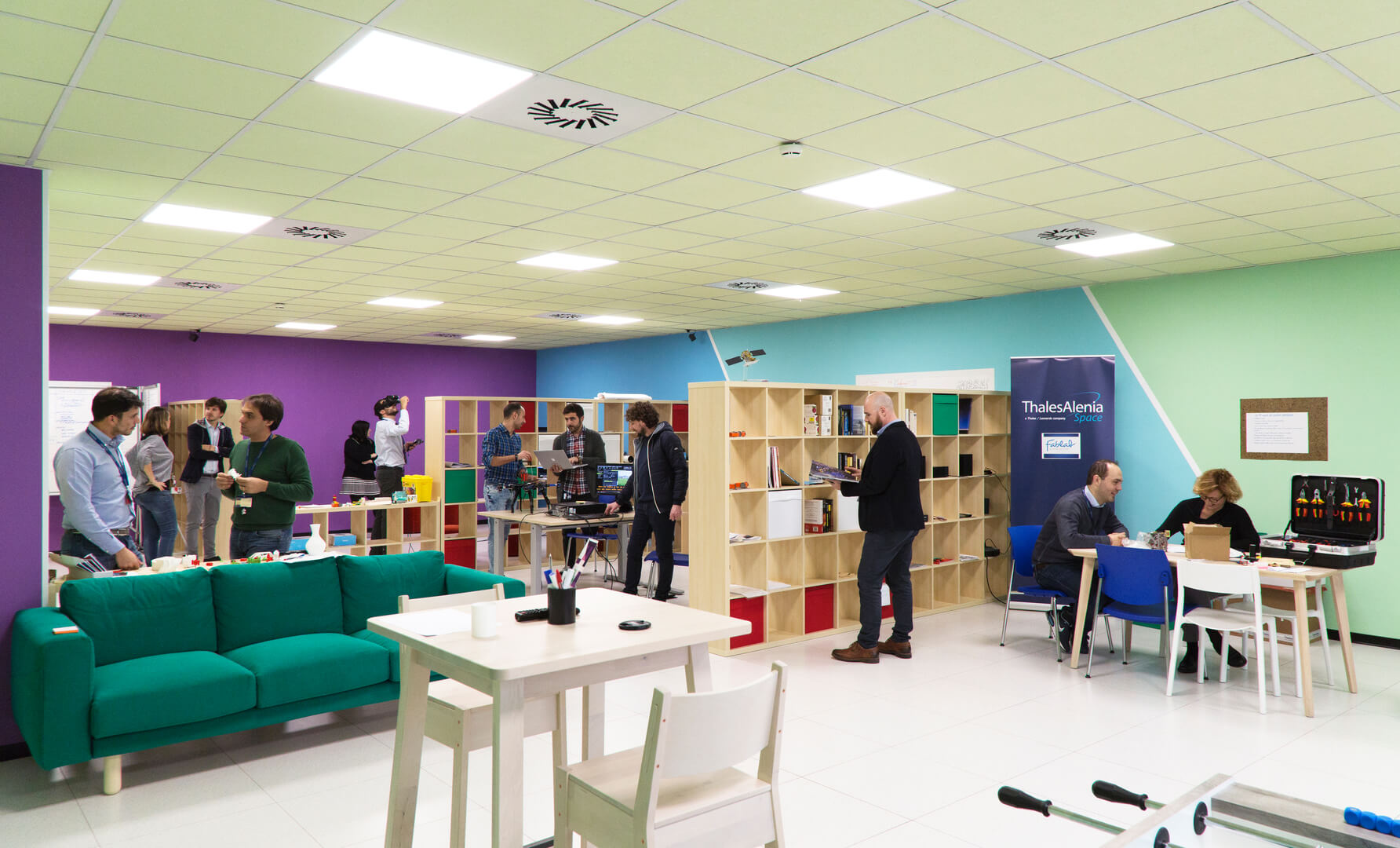
FabLab - Rome © Thales Alenia Space
Launched in 2017, our FabLabs are open to all Thales Alenia Space colleagues to encourage their inventiveness by providing rapid prototyping tools, including both hardware and software. They’re also a forum for discussion and sharing that complements our current industrial organization.
The FabLabs help colleagues embrace innovation culture by providing the resources needed to develop their own projects in a test-and-learn approach. Production-wise, they help create products by spawning new solutions and giving us an early idea of the technologies we need to develop. This approach has proven extremely useful — for example, for the development of new tools used in volume production of constellations via additive manufacturing. With almost 400 projects designed by a community of 1,500 makers, FabLabs are a highly effective tool and directly benefit creativity, intrapreneurship and innovation.
Employee engagement as a driver of innovation
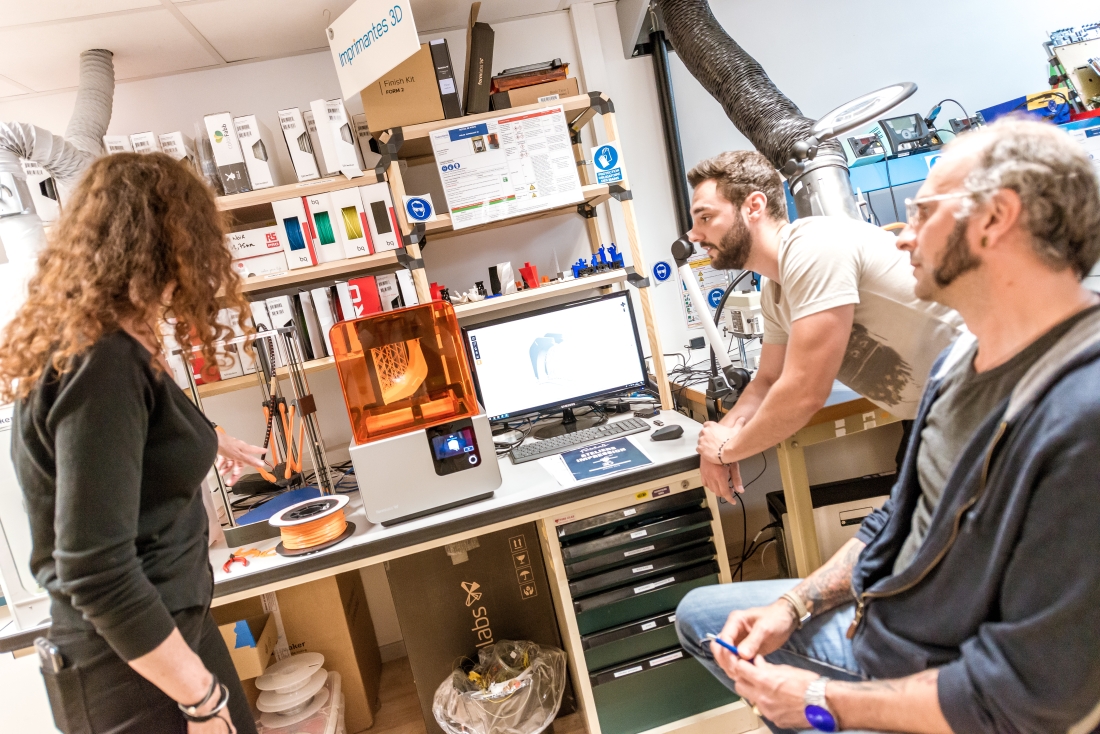
FabLab - Toulouse © Thales Alenia Space
At Thales Alenia Space, the engagement and creativity of our people is at the heart of the Innovation Cluster’s success. Our Innovation Points of Contact, or iPoCs, play a crucial role in providing impetus for this innovation network and its role in identifying and supporting colleagues with disruptive innovation ideas. Deployed at most Thales Alenia Space sites, iPoCs help stimulate and accelerate the emergence of ideas by colleagues.
Despite the challenges we’ve faced, not least during the Covid-19 pandemic, the importance of local in-person interaction for unlocking innovation is undeniable. In 10 years, colleagues have submitted nearly 400 ideas. Of these, about 300 have been supported, giving rise to innovations in our products, processes and ways of working.
Success stories
A key feature of the Innovation Cluster is its focus on disruptive innovation, fueled by open collaboration with external players, especially startups, and the occasional stroke of serendipity. This approach has generated hundreds of innovative ideas and projects with a profound impact on Thales Alenia Space’s products, processes and ways of working.
Among the ideas put forward and explored by colleagues, the Innovation Cluster has helped us create RF technology on PCBs, and in turn miniaturize electronics on satellites, develop a laboratories-as-a-service offering, an integral part of the Smart Factory project at our Rome facility, and experiment with management innovation initiatives in various teams.
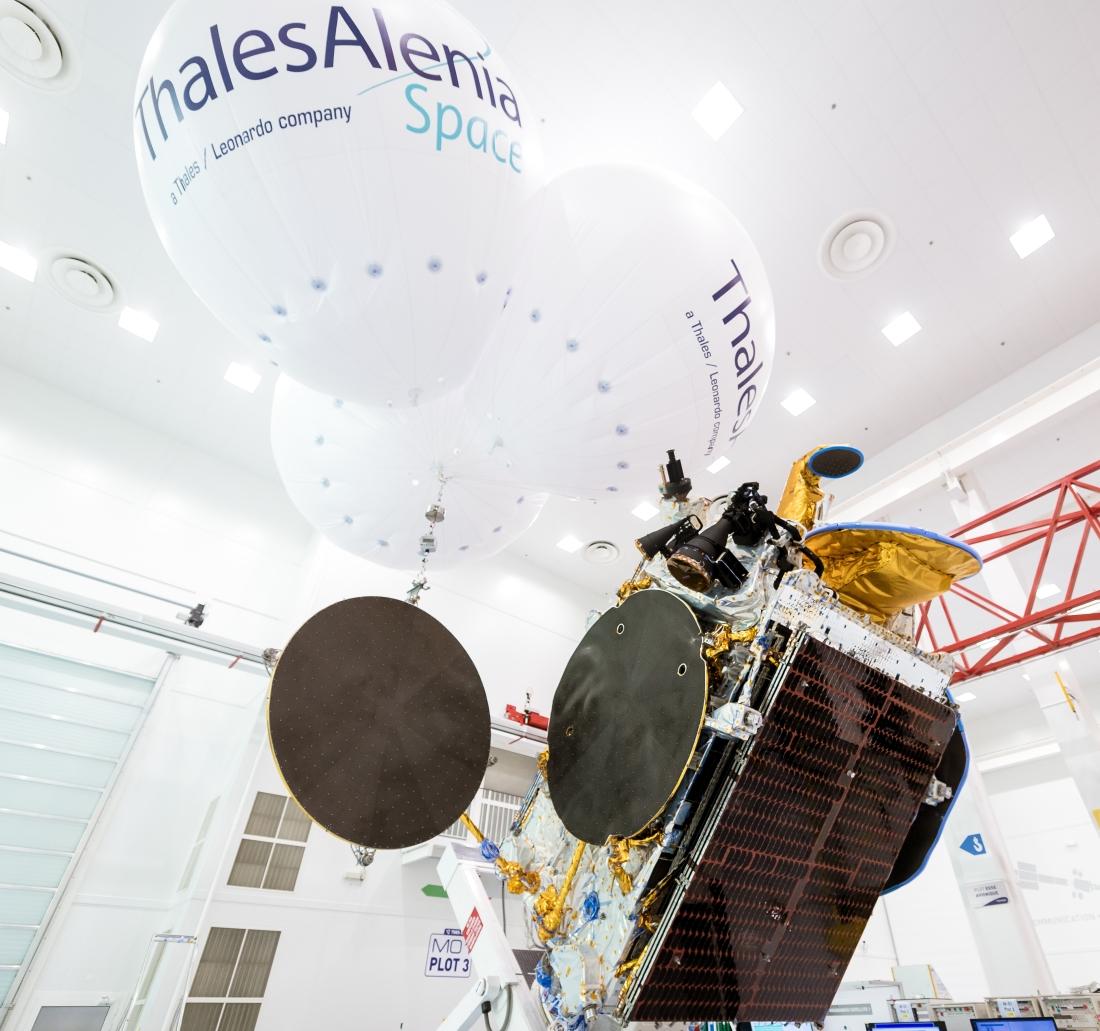
Bangabandhu Satellite-1 ©Thales Alenia Space/Imag[IN]
Another example, which actually spawned the Innovation Cluster, was a project to design a multispot telecommunications solution that uses specific bandwidths to precisely address government and national sovereignty requirements. This approach proved decisive in the battle to win the Bangabandhu Satellite-1 contract, a satellite that’s now helping bridge the digital divide in Bangladesh.
Thales Alenia Space has recently won contracts to build seven geostationary communications satellites based on our new Space Inspire product line, an all-digital solution that’s also reconfigurable in orbit. Our R&D department and the Innovation Cluster teamed a few years ago to conceive a line of standard projects dubbed “mini-geo” at the time and featuring a compact satellite design. The new Space Inspire line adopted this compact form factor, derived from mini-geo, as the basis for our new communications satellite family. It has been further improved and fully digitalized since then to address the current needs of telecoms operators.

Space INSPIRE ©Thales Alenia Space/E.Briot
In 10 years, the Innovation Cluster has contributed in one way or another to more than 45 projects and programs. Thanks to these achievements, it won an Innovation Team Best Practices 2019 Award from the Paris Innovation Directors Club, bringing together a number of leading listed French companies. The award was given in the Innovation Strategies and Management category.
Focused on the future: agility and adaptability
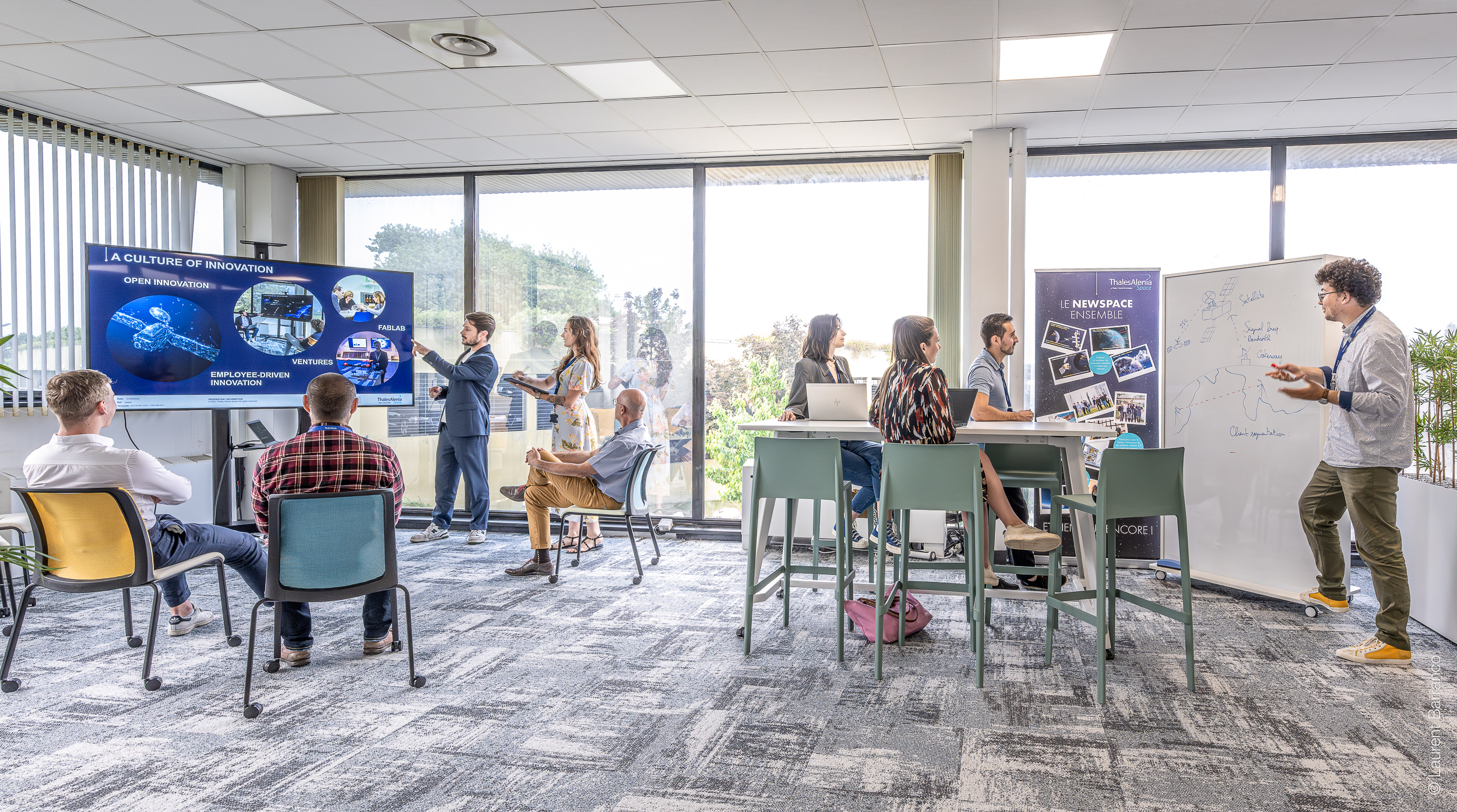
The Space Business Catalyst ©Thales Alenia Space/L.Barranco
At the same time, the Innovation Cluster has adopted a more business-oriented focus through its Ventures. These are intrapreneurial projects taking on the approaches of startup companies, leading to the creation of new product lines and strategic partnerships, such as the advent of Space Edge Computing with a first demonstration on the International Space Station funded by Microsoft. The recent launch of the Space Business Catalyst — the world’s first industry accelerator dedicated to space startups — reflects Thales Alenia Space’s commitment to open innovation and collaboration with emerging New Space players. As part of the Space Business Catalyst program, we’re working closely in Toulouse and Turin with startups like Orbital Matter (3D printing in space) and Aiko (embedded AI), as well as longer-standing startup partners such as Space Cargo Unlimited (biotech in microgravity), Geoflex (precise point positioning), SwissTo12 (3D printing design) and Space Locker (standard interfaces for modular space).
As Thales Alenia Space celebrates a decade of innovation, it’s vital to look to the future. In an ever-changing world, agility and the ability to adapt quickly are more important than ever. The fundamental principles of the Innovation Cluster will continue to be central to our strategy, with constantly evolving tools and methods to meet the challenges ahead!


